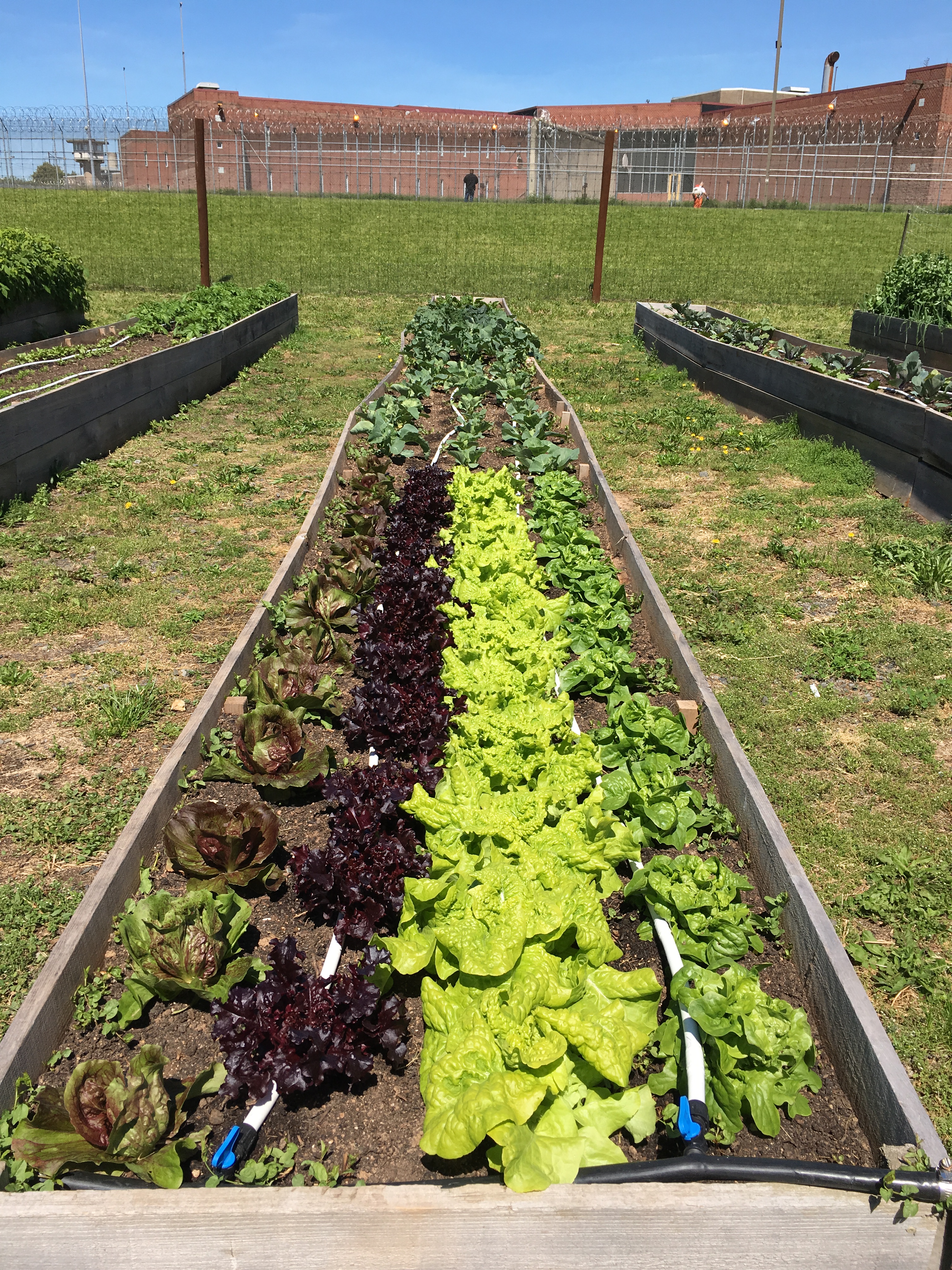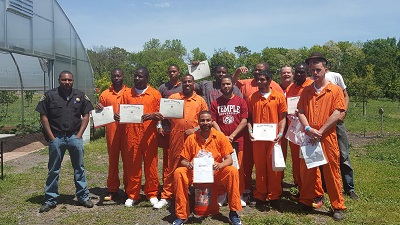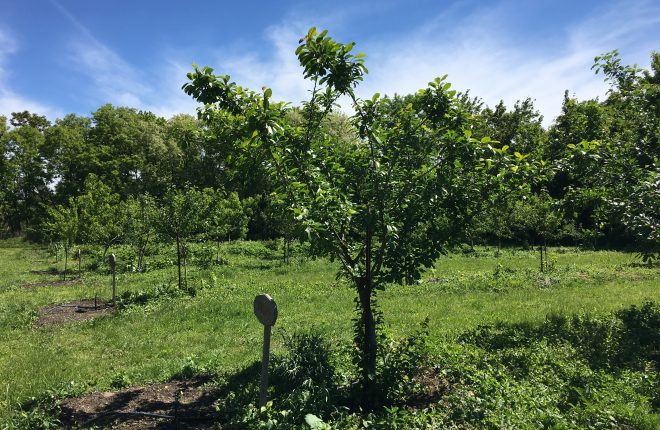On May 16, 2017, twelve men graduated from a program that earned them Vocational Certificates in Organic Agriculture from Temple University. They weren’t tending to a garden on Temple’s campus or working on a farm outside of Philadelphia though.
They worked on a farm and orchard growing hundreds of apples, pears, figs, berries, and peaches, in one of Philadelphia’s prisons.
The Philadelphia Prison System may not be the first place you’d think to find an urban farm. But dedicated staff at the Prisons with a passion for sustainability turned unused green space into an opportunity for workforce development and re-entry support for inmates.

Laura Cassidy, Sustainability Manager for Philadelphia Department of Prisons has turned two acres at Philadelphia Industrial Corrections into a mini-farm, orchard, and compost facility. “We have 250 trees out there and 5 raised beds. On an average day, we could be sitting on 400 or 500 pounds of raw food waste,” Cassidy states.
“It’s not an easy job. Days like today they are out there pulling weeds and mowing lawns and we are just starting to see the harvest of peaches. It can be physically demanding at times. [Graduates] can stay with the program and work as mentors and most of them have stayed”, Cassidy explains. “It’s not mandatory, they could go on to do another job like laundry, but most of them have opted to stay with us upon their [certificate completion] which, I think, says something about the program.”
During the program, students composted food waste at the Prisons’ composting facility to create fertilizer for the farm. They learned the basics of organic agriculture practices, such as using chickens for pest control rather than spraying pesticides. In one of their favorite lessons, they listened to a TED Talk by the Gangsta Gardener.
The program helped them make connections between food, agriculture, and adverse impacts of the food system on climate change. In addition to learning about urban agriculture, each participant worked with the Mayor’s Office of Reintegration Services (RISE) and received classes focusing on skills such as public speaking. “If anyone sees Trump, tell him we found the solution for climate change,” one of the students joked during his graduation speech.

Cassidy sees this as a gateway for many people who have never had a job before. Between Cassidy, Temple, and RISE, the program aims to give these participants all the opportunities available to help with job placement upon their release. “This actually provides some discipline and structure, perhaps what the real working world will be like.”
Part of the initial idea was to make a self-sustaining correctional facility. However, the reality is they can’t replace the food system at the facility, but they can supplement. Cassidy is hoping to form a committee to establish a formal distribution method, covering proper handling and processing of the farm products in anticipation of the increased volume to come. For now, she is sharing the produce with Prison’s employees and the participants get to enjoy the fruits of their labor.
To commemorate the completion of the program, the graduates were able to celebrate their achievement surrounded by family and loved ones. To date, there have been 36 graduates with more to come. The 5th cohort begins this Friday, with 18 guys lined up to learn about Organic Agriculture with the Prison’s Urban Farm and Orchard Program.


